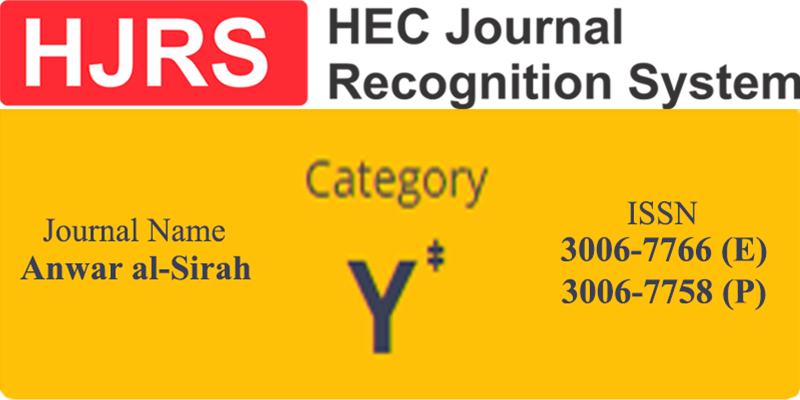عائلی زندگی کے حقوق و آداب: تعلیمات نبویہ ﷺ کے تناظر میں
The Rights and Manners of Family Life: in the Context of the Teachings of the Prophet ﷺ
Keywords:
Manners, Family life, Parents Rights, Spouses RightsAbstract
When the theory of family life is discussed, its members are considered to be spouses and children. Family life enables man to take on the responsibilities of a wider life in the world. The purposes of family are high and many. The duties of a high quality of life inculcate a sense of responsibility in man. If there is no proper division of duties in the home life the system becomes drowsy and disorganized. Men and women are protected from many temptations after adopting a married life. It is as if a woman is protected in a moral shelter. In which the young people of the nation grow up free from external events, the parents are its guardians, the home is the primary training ground of the child, the way of eating, drinking, standing up and talking, which he learns in childhood, is the foundation of them. In Islam, there is a lot of emphasis on fulfilling one's household duties, and this has been clarified by the sayings of the Prophet (Peace be upon him).The thesis under consideration revolves around the teachings of the Prophet and In the article under review, the basic members of family life, spouses, parents and children, have been informed about their rights, manners and responsibilities in the light of Sirat Tayyaba ﷺ and some important of these rights have been mentioned.
Downloads
Published
How to Cite
Issue
Section
License
Copyright (c) 2024 Dr. Naveed Khan, Ghulam Muhammad

This work is licensed under a Creative Commons Attribution-NonCommercial 4.0 International License.
Copyrights of all research papers published in Journal of the 'ANWĀR AL-SĪRAH are held by the auther(s). However, as the 'ANWĀR AL-SĪRAH follows Open Access Policy under license CC by NC for global exchange of knowledge, readers are freely allowed to download, read and print the full text papers of 'ANWĀR AL-SĪRAH without prior permission from the 'ANWĀR AL-SĪRAH or the author(s) as long as they acknowledge/cite the 'ANWĀR AL-SĪRAH as the original source.


